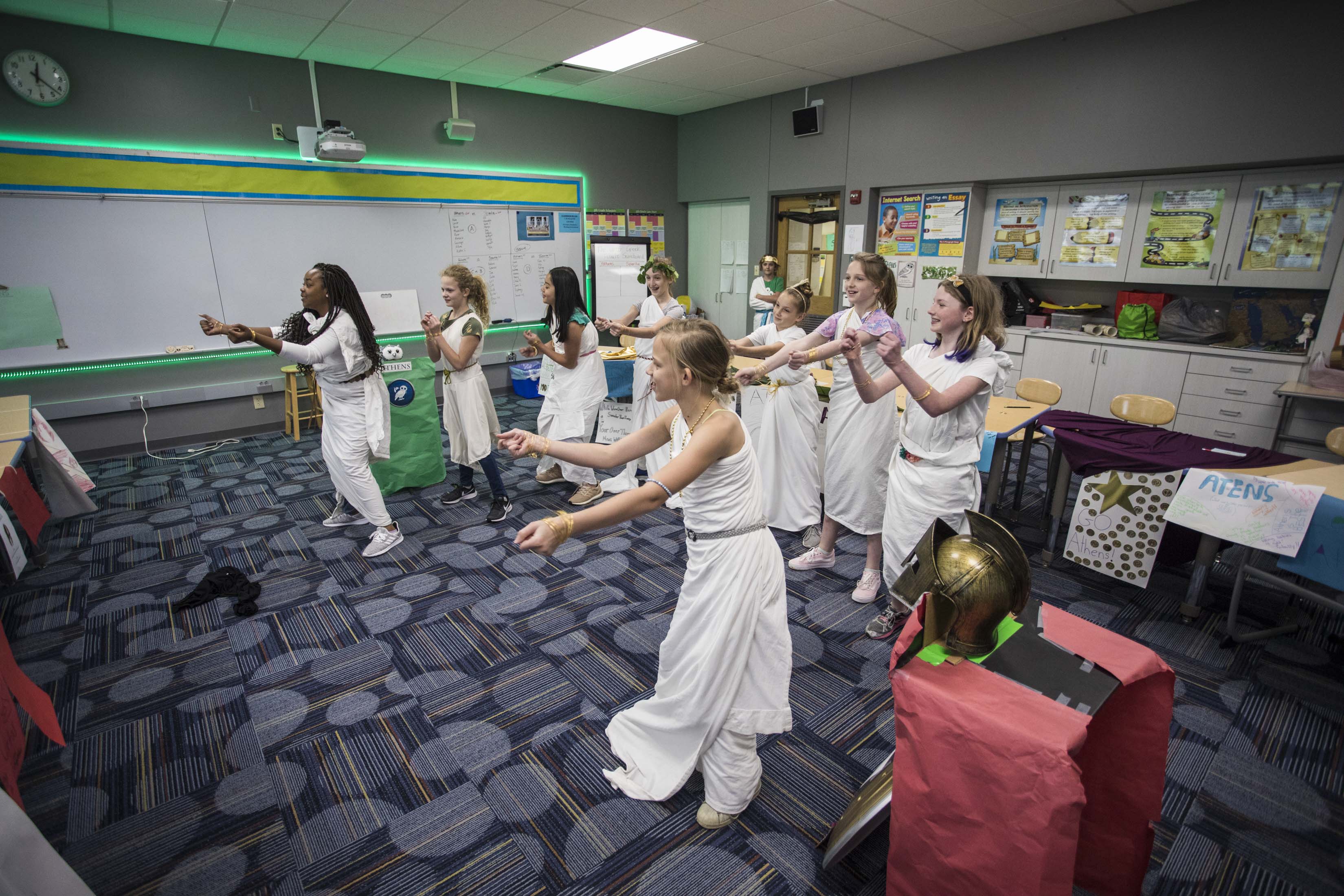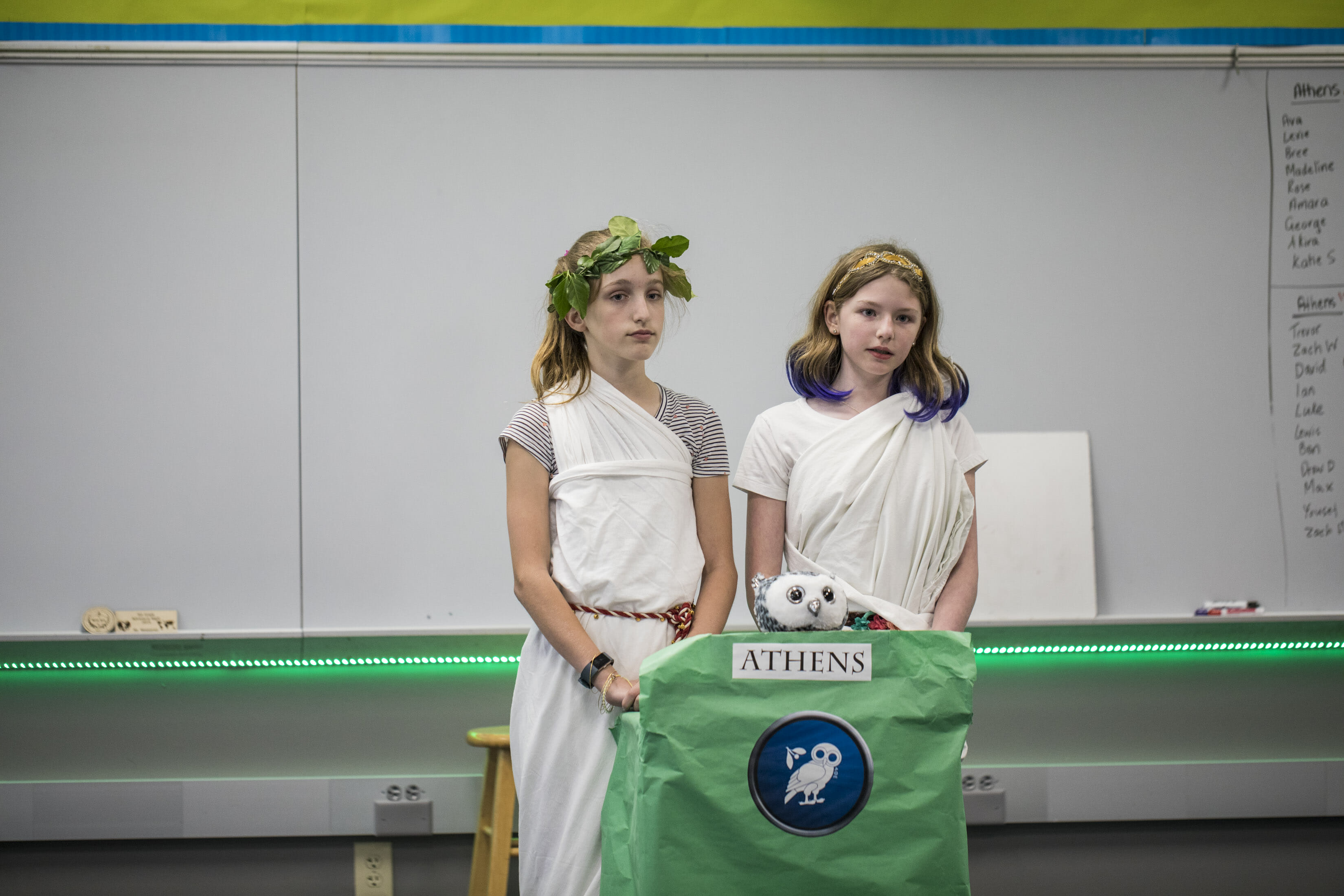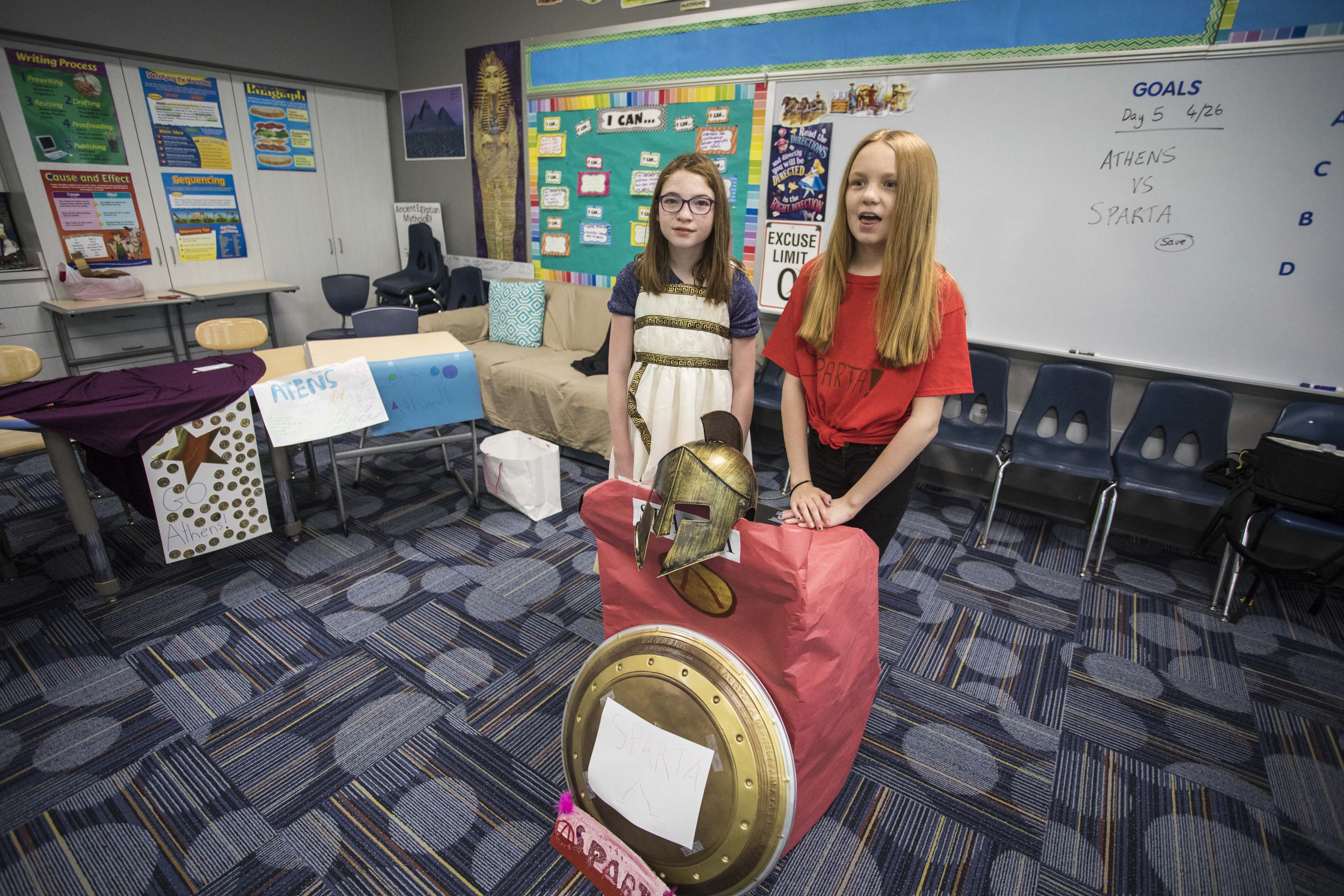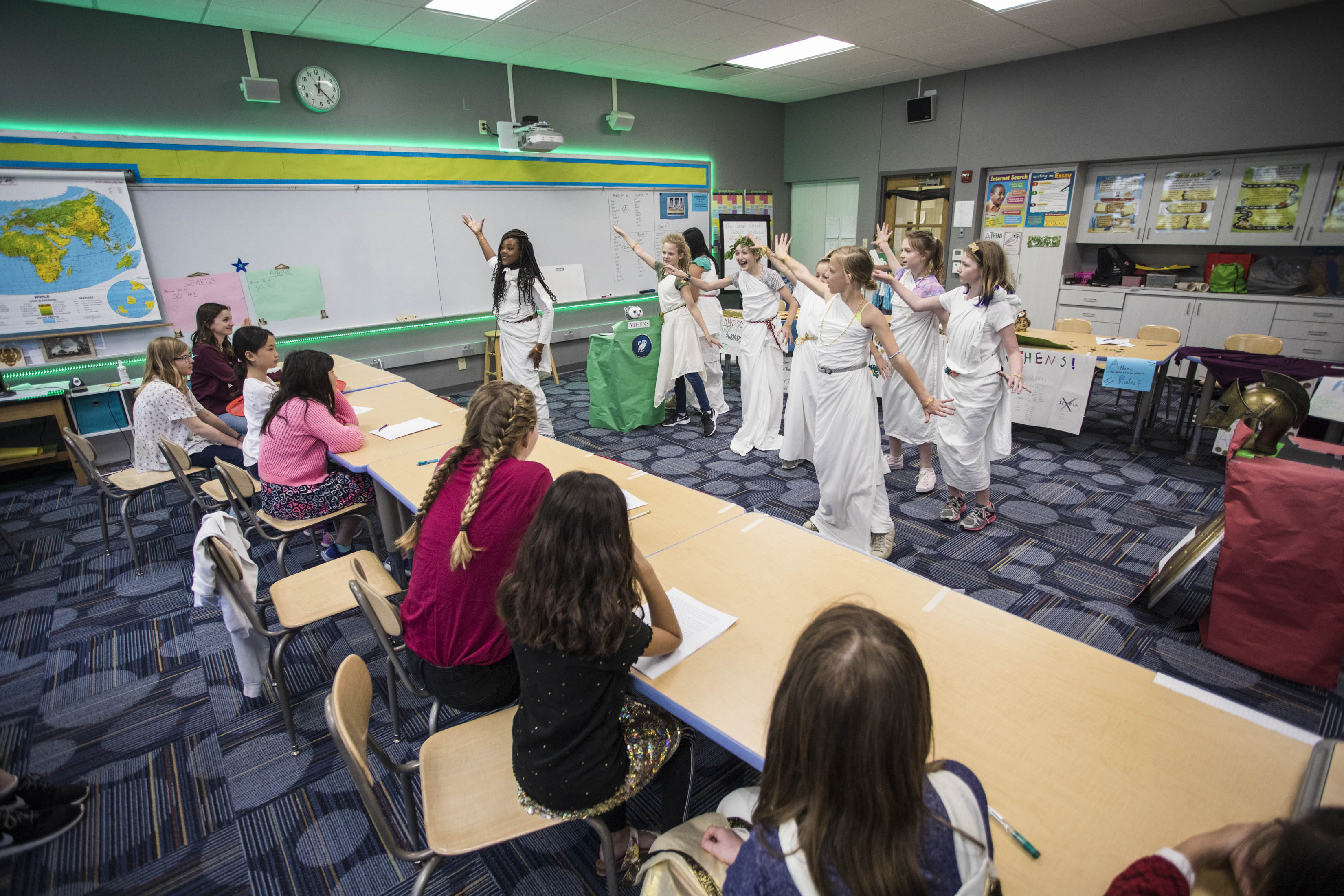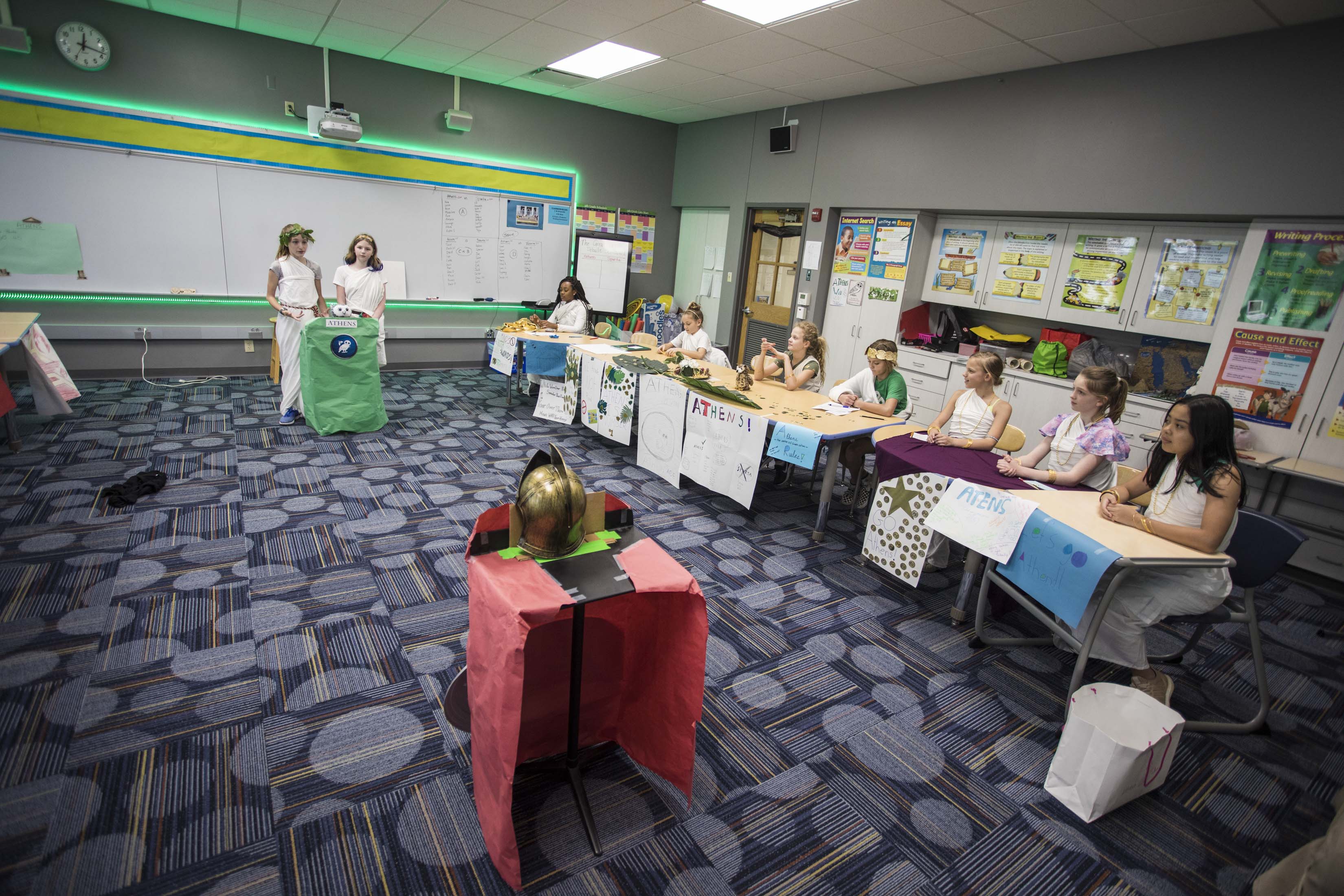Middle School history teacher Robyn Williams‘ 5th grade history students recently participated in a fierce debate about which ancient Greek city-state reigned supreme: Athens or Sparta. Students were divided into teams to research their assigned society specific to a selected topic. They were encouraged to investigate the strengths and weaknesses of their opponents’ society, as well as the strengths and weaknesses of their own city-state. Meredith Mack ’26 said, “My favorite part was the research. When you find an important fact or something really interesting, then it gives you a feeling like you found out the most amazing thing in the world.” Trevor Gatz ’26 enjoyed the collaborative process. He said, “The thing I enjoyed about this debate was the teamwork because my teammates were open to new ideas for their argument.”
Ms. Williams said, “The Greek Debate is one of my favorite projects. I love seeing how much the students get into their roles and the passion they have for their topic and their team.” The enthusiasm began building even before the big debate. Leading up to the event on Friday, April 26, the 5th grade hallway was a cacophony of arguments over which city-state was better. Students seemed to be enthusiastically practicing their debating skills long before the actual debate day. Some teams went above and beyond the requirements, creating their own rap songs, dances and posters about why their city-state was superior. On the day of the debate, students dressed up to show their allegiance to their team before taking the “stage” to argue their case. A lively discussion encouraged whole-class participation. Naray Phatak ’26 remarked, “I enjoyed the way everyone got fired up about the debate; you could just see it because of how many people brought posters, togas, shields and more. My favorite part was probably watching everyone debate. We were all so determined, and we put up an amazing fight.” As in any debate, students were required to know their material well in order to form counter-points in response to their opponents. “We learned how to have quick wits and thinking on the spot,” said Rose Sabalvaro ’26.
Amara Macia ’26 shared that her classmates encouraged each other through the debate. “I just loved how it made you feel important. When it was your turn people cheered for you. It made you feel special.”
